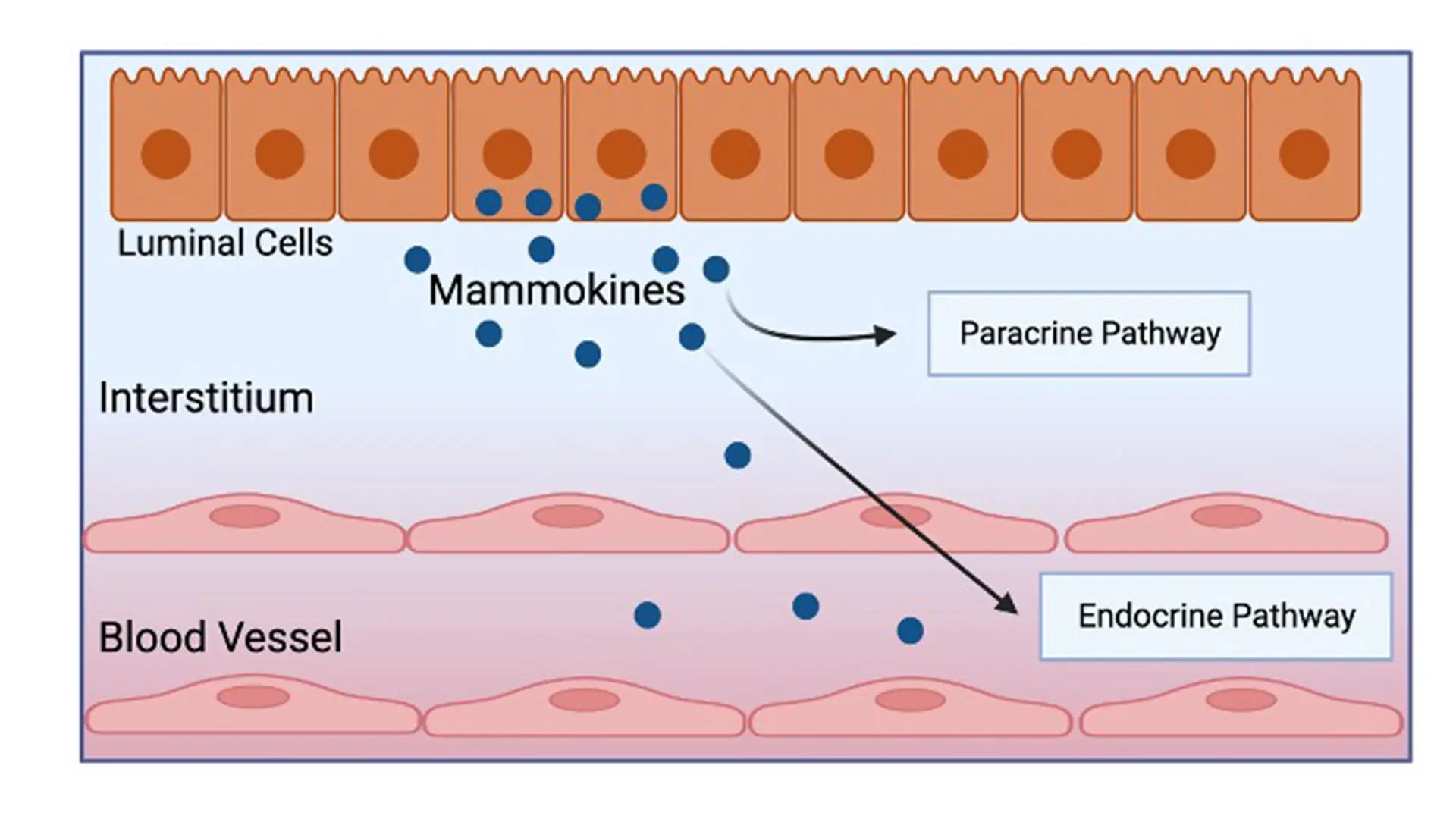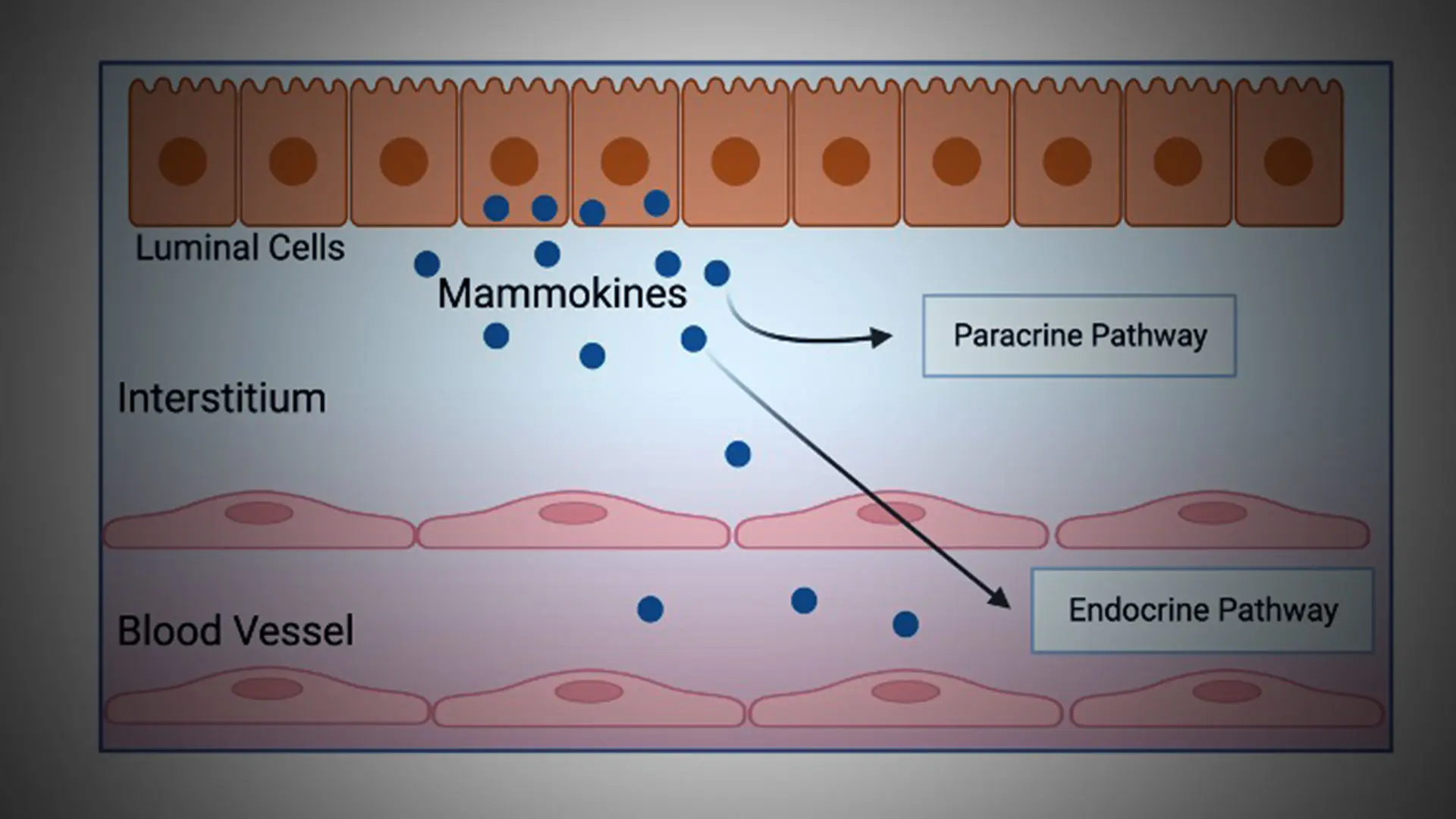While much is known about how organs such as the liver, fat tissue, and pancreas contribute to metabolic diseases, a Mount Sinai researcher and his team have turned their focus to a novel subject—the mammary gland. For this work, the National Institute of Diabetes and Digestive and Kidney Diseases (NIDDK) Catalyst Award program in 2024 awarded a $4 million, five-year grant to Prashant Rajbhandari, PhD, Assistant Professor of Medicine (Endocrinology, Diabetes and Bone Disease) at the Mount Sinai Diabetes, Obesity, and Metabolism Institute, to investigate a new frontier in understanding diseases such as obesity and type 2 diabetes.
The project is designated by the NIDDK as a High-Risk, High-Reward Research program.
“By using advanced technologies and machine learning that analyze single cells and proteins, the team and I hope to identify specific hormones produced by the mammary gland, which we call ‘mammokines,’” Dr. Rajbhandari says. “We believe mammokines could play a critical role in how the mammary gland communicates with different organs during breastfeeding and pregnancy and may influence obesity and diabetes in both mothers and offspring. Understanding these interactions might lead to new treatments or biomarkers for these diseases, particularly in women.”
The grant is part of the National Institutes of Health Director's Pioneer Award (DP1) mechanism. The DP1 mechanism was established to support investigators who exhibit exceptional creativity and who are conducting highly innovative research projects.
Dr. Rajbhandari’s study will explore how the mammary glands, particularly the cells lining the milk ducts, influence the body’s overall metabolic health. This research is inspired by the well-documented benefits of breastfeeding, which reduces the risk of diabetes and obesity for both mothers and their children. However, obesity can interfere with the normal function of the mammary gland, potentially affecting both maternal and child health. This groundbreaking work could reveal how the mammary gland acts as an endocrine organ, potentially affecting the liver, pancreas, and fat tissue. The team will explore how these processes occur in both mice and humans, providing insights into the physiological impact of disrupted endocrine communication.
“The Catalyst Award is a very prestigious, and well-deserved, honor for Dr. Rajbhandari,” says Andrew Stewart, MD, Director of the Diabetes, Obesity, and Metabolism Institute at Mount Sinai. “His work holds enormous promise for advancements in women's health and metabolic research and the development of personalized treatment strategies.”

Illustration of the production of mammokines from luminal epithelial cells in the mammary gland, which can act on the paracrine pathway in the glandular interstitium and the endocrine pathway via blood vessels.
“This research represents a unique opportunity to make a critical impact on the fight against some of the most prevalent health issues of our time.”
Prashant Rajbhandari, PhD
Dr. Rajbhandari and his team described the discovery of mammokines in a study published in July 2023 in Nature. Mammary adipose tissue has long been recognized for its essential role in breast biology. It consists of many different cell types, including fat cells (adipocytes), immune cells, sympathetic nerve fibers, and mammary epithelial cells forming a milk-producing ductal system.
The study, conducted in a mouse model, revealed an unexpected role for nerve-activated ductal cells in mammary adipocyte metabolism and heat generation. These mammary duct-secreted mammokines play an important role in controlling mammary gland fat abundance and could potentially orchestrate critical processes involved in breast development, lactation, and overall whole-body metabolic regulation. The findings shed light on the interplay between mammary adipose tissue and breast health, and suggest possibilities for understanding breast development, lactation, cancer, and obesity and related metabolic disorders.
“This research represents a unique opportunity to make a critical impact on the fight against some of the most prevalent health issues of our time,” Dr. Rajbhandari says. “Obesity and diabetes affect millions worldwide, yet many of the mechanisms behind these diseases remain poorly understood. By investigating how mammokines affect organs such as the liver and pancreas, this project could reveal entirely new pathways, potentially transforming the lives of countless lactating and non-lactating individuals.”
Featured

Prashant Rajbhandari, PhD
Assistant Professor, Medicine, Endocrinology, Diabetes and Bone Disease
